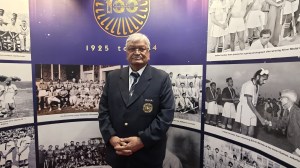After Nepal, Bangladesh worries India, US
Encouraged by the effective cooperation between the two countries in dealing with the political crisis in Nepal, India and US today discusse...

Encouraged by the effective cooperation between the two countries in dealing with the political crisis in Nepal, India and US today discussed ways to close ranks and synchronise efforts to respond to the deteriorating situation in Bangladesh.
This came up during consultations between US Assistant Secretary of State for South Asia Christina Rocca and her counterparts in the Ministry of External Affairs. Both sides shared concerns at the rising levels of violence in Bangladesh and exchanged views on ways to deal with it.
Buoyed by the results of their response to the Nepal crisis, both sides felt confident that a similar effort could be effective in addressing the situation in Bangaldesh. In fact, this was discussed during US Secretary of State Condoleezza Rice’s visit to India last month and both sides agreed on holding regular consultations for this purpose.
The growing cooperation on regional issues, South Block officials said, was one of the dimensions to the expanding Indo-US relationship. The recent visit of the External Affairs Minister saw both sides preparing the grounds for the start of the energy dialogue and setting up a joint working group on space cooperation.
All these elements will be addressed separately in the days ahead, but the first on the agenda after Rocca’s visit will be an interaction on the sale, supply and production of US military equipment in India. Lt Gen Jeffrey Kohler, Director of the Defence Security Cooperation Agency, will be here on Wednesday to hold talks with officials in the Defence Ministry.
Sources pointed out that Lt Gen Kohler is the pointsman for foreign defence sales in the US and his visit must be seen in the context of Washington’s offer for F-16s and F-18s as well as the willingness to even jointly manufacture such equipment here.
Kohler will be followed by Shirin Tahir-Kheli in early May who is the advisor to Rice on the UN reforms. Her visit, sources said, will initiate a dialogue between both countries on this issue with India obviously focusing on UN Security Council expansion and its own entry as a permanent member with veto powers. The dialogue will serve as an opportunity to build a convergence of views on the subject.
While the counterparts in the JWG on space cooperation is yet to be firmed up, sources said, a meeting of the group has been slated for sometime in mid-May. This again was agreed upon during Natwar Singh’s visit with the US open to discuss prospects of cooperation with India on satellite fabrication, satellite marketing and satellite launch. There are very few countries with which US has an understanding for satellite launch, Russia being one of them.
The energy dialogue between Deputy Chairman of Planning Commission Montek Singh Ahluwalia and US Energy Secretary Samuel Bodman is also expected to be held by May-end. As of now, both sides have agreed on discussing civilian nuclear cooperation but New Delhi hopes the final outcome would address transfer of nuclear reactor technology. From a US standpoint, it has a host of legislations that restrict it from engaging in such cooperation with non-NPT members. India would also like to resume some of its earlier cooperation in fields like laboratory experiments and exchange of technical information barred after the Pokhran test.





- 01
- 02
- 03
- 04
- 05


























